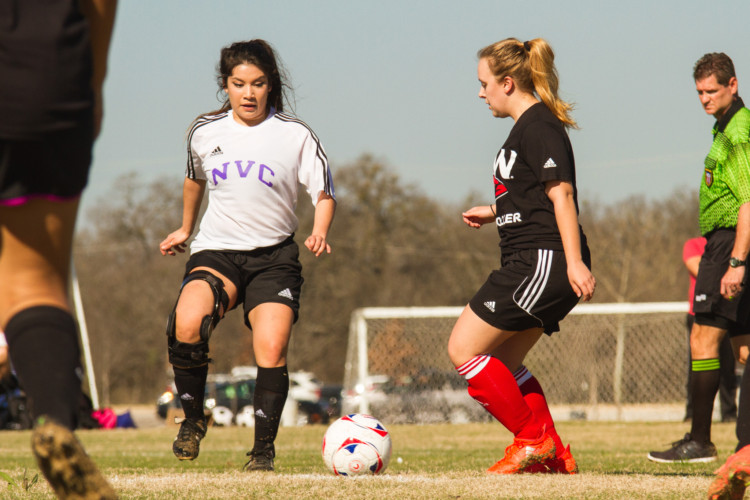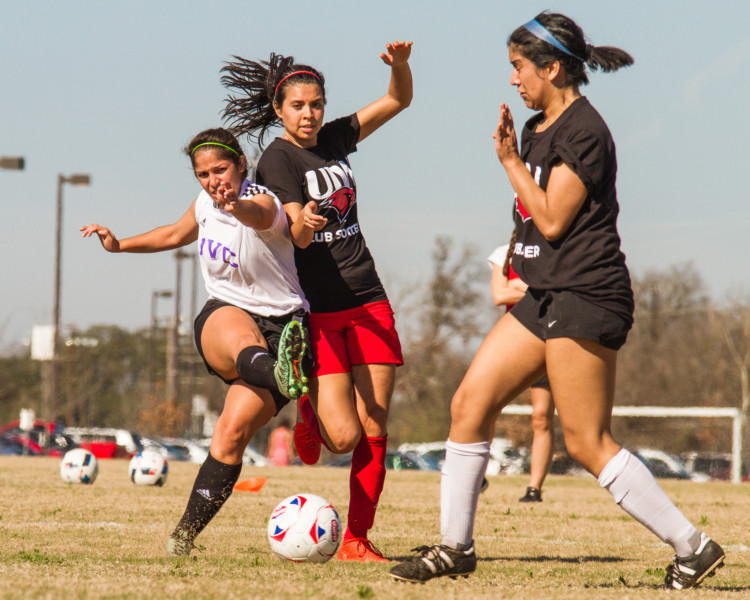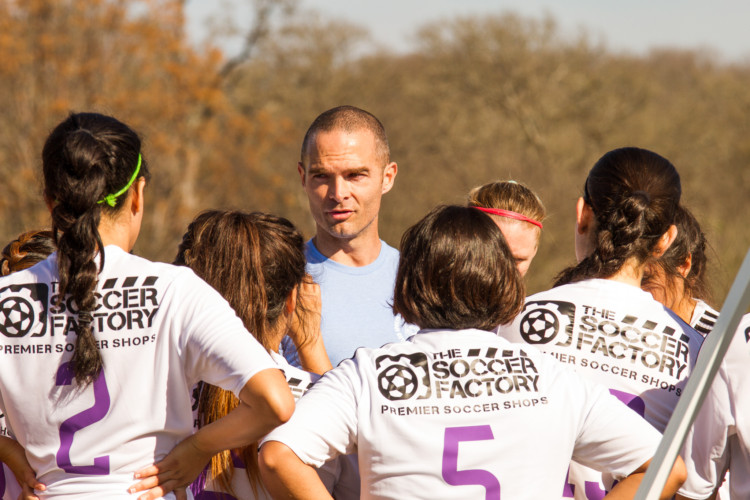 Starting a college athletic team isn’t easy. Starting one from scratch can seem even more daunting.
Starting a college athletic team isn’t easy. Starting one from scratch can seem even more daunting.
But Northwest Vista College’s first women’s soccer team proved the challenges are worth it. The team’s first game against the University of the Incarnate Word on Feb. 19 handed a commanding victory for the Lady Wildcats with a 14-0 win.
At many colleges and universities, sports teams often have a huge following of fans and big budgets. At NVC, it’s hit or miss if there’s a packed house at a basketball game and funding is limited or left up to sponsors to help out.
But evidence shows students who participate in recreational programs get more out of college. According to a 2014 report by the National Intramural-Recreational Sports Association, 67 percent of students report campus recreation programs influenced their decisions to continue attending their college/university. The report says there is credible evidence of the benefits of collegiate recreation on student recruitment, retention, and health and wellbeing.
The goal is to “give the girls an opportunity to engage and a place to belong at Northwest Vista,” said Leland Hammonds, NVC women’s soccer coach, and a NVC Kinesiology instructor.
He’s also hoping if his players continue competing at a high level, Vista will be a destination program for female athletes.
Northwest Vista has a reputation for winning. The women’s basketball team, coached by Daniel Johnson, has won four league championships. The men’s basketball team, coached by Curtis McGlown, had an undefeated 2014-2015 season and has won two championships. Also a few players from the basketball and volleyball teams have received sports scholarships or caught the attention of college sports recruiters.
Vista’s volleyball program, coached by Annette Berain, also has one league championship under its belt. And last year – the inaugural year for the men’s soccer team – coached by David Galindo, celebrated its first league championship. Additionally, many of Vista’s Cross Country runners, coached by Stacey Krueger, beat numerous runners in their age groups at local competitions.

Daniel, who oversees Northwest Vista College sports programs, said “our students are competing at a higher academic level than any other student organization on campus and athletes at major universities. I have heard from many students say if it wasn’t for sports, they wouldn’t be working as hard in the classroom.”
NVC student athletes must have a GPA of a 2.5 and be enrolled in nine credit hours. Typically, students need to have a 2.0 GPA to participate in clubs or sports.
Last year, every member of the volleyball team had a GPA of 3.05 or higher. On the women’s basketball team, nine out of 10 players had a GPA of 3.08 or higher. For the men’s team, six out of 12 players had a GPA of 3.0 or higher.
Sarah Anaya, 18, transferred from Palo Alto College to Northwest Vista just to play on the new women’s soccer team. She’s been playing soccer since age 7 and also works at an indoor soccer facility. Her soccer career was put on hold when she had to endure knee surgery after the soccer season was over in her senior year at Somerset High School. In spite of her love of soccer, Sara says she knows she has to keep her grades up to stay on the team.
“I have to keep up with assignments and stay up late,” Sarah said of her busy schedule. “I want to play and you don’t want to let your team down because you are failing.”
Sarah said her soccer team at Somerset was a new team like Vista’s, and she understands there may be some growing pains.
At Vista, the Feb. 19 debut of the women’s first soccer game was a year in the making.
Leland’s laundry list of challenges included getting the word out to the student body, finding off-site facilities to train at, figuring out equipment needs, getting quality assistant coaches and figuring out how to pay for everything.
 Leland said the biggest hurdle is striving to keep the cost down for each player.
Leland said the biggest hurdle is striving to keep the cost down for each player.
“We aren’t there yet, but our goal is to raise enough money through sponsorships and fundraisers to pay for an entire season with no additional money from athletes,” he added.
Despite knocking on many doors, donations have been far and few between. Just recently Monica Del Campo from State Farm Insurance put a small dent in the soccer’s team budget with her contribution.
Paying out of pocket to be a part of a sports team can be challenging for many community college students who are juggling going to school, working and family/child-care issues.
Leland said unfortunately about six potential players declined to play due to financial commitments to their families or scheduling conflicts. Finding time to play a sport isn’t easy. The women dedicate up to 12 hours a week for practice and conditioning. On top of that, the coaches put in another 20 plus hours to support the teams.
Sarah says she’s up at 6:30 am to attend practice, then attends classes and heads to her job. Often she doesn’t get home until 1 a.m. Even with the long days, Sarah hopes she can one day play soccer for a four-year college. But at Vista, she’s learning to be a better player.
“It’s exciting being able to represent (your college) and to win,” she adds.

